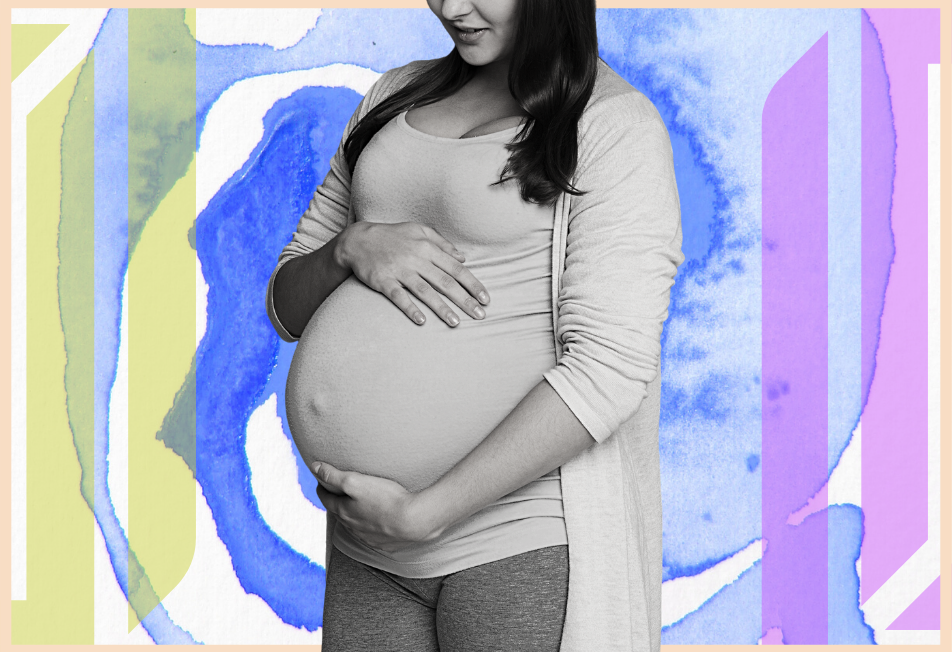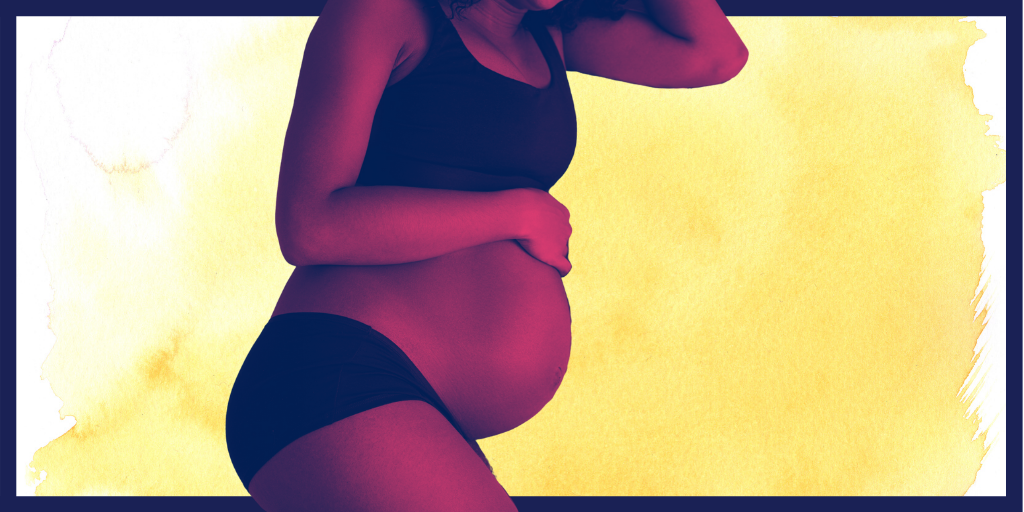Fear of pregnancy discrimination may be putting some workers at risk
"The pregnancy stereotype is a silent stressor. It is not always visible, but it really impacts women in the workplace."

PHOTO EDITED BY WE REP STEM.
Fear of pregnancy discrimination may be putting some employees at risk, according to a new study published in the journal Work & Stress. The Washington State University study by Lindsey M. Lavaysse and Tahira M. Probst found fear of being perceived as incompetent, or weak, or less committed, prompted about 63 per cent of the participants to over-exert, engage in risky behaviour, or attempt to conceal their pregnancy.
“The pregnancy stereotype is a silent stressor. It is not always visible, but it really impacts women in the workplace,” Lavaysse said in a statement.
“Most organizations have policies for pregnancy accommodation in place, and it’s a legal right, but if the organization’s culture suggests there will be retaliation or that workers will be looked upon differently, then women will shy away from using accommodations that are better for their health and their safety.”
For their paper, Lavaysse and Probst surveyed around 400 pregnant employees three times over two months. They worked in several sectors, including manufacturing, retail, and health care and all were employed in physically demanding jobs, defined in the paper as involving long work hours, shift work, lifting, standing, or high physical workload.
Women who were the most fearful of confirming pregnancy stereotypes (referred to in the paper as having a high ‘stereotype threat’ or ‘ST’) had nearly three times as many work-related accidents as those who had low fears of confirming pregnancy stereotypes.
The paper found that fears increased as pregnancy progressed.
“We propose that in an attempt to maintain their professional social identity, women may avoid enacting behaviours that could potentially confirm negative stereotypes of pregnant workers – even if this means placing themselves and the unborn child at risk,” reads an excerpt from the paper.
“Pregnant employees’ concern over negative stereotypes is not unfounded; indeed, research indicates that pregnant women face discrimination at work*. Moreover, even when pregnant employees request pregnancy-related accommodations, these requests may be denied**, resulting in pregnant employees having to choose between losing their job or continuing to perform potentially risky job-related behaviours.”

Sign up for our newsletter and get the latest headlines delivered right to your inbox.
The authors concede the study has its limitations. For starters, many of the participants were self-selected and some dropped out during the two months.
While the findings do not draw significant conclusions based on race, ethnicity, sexual orientation, marital or disability status, or income level, the results hint that individuals who are intersectional minorities could be at greater risk of work-related pregnancy discrimination.
In a follow-up conference presentation, Lavaysse dug deeper into the intersectional aspect and found the more intersectionality a pregnant worker possesses, the more likely they are to experience a high stereotype threat.
“Workers may also experience larger increases in stereotype threat as their pregnancy progresses if they identify with stigmatized identities,” reads an excerpt from the presentation.
According to the paper:
About 45 per cent of the participants held a Bachelor’s degree, and 76 per were pregnant for the first time.
Around half were in their first trimester. The majority were married (79.5 per cent), Christian (50.8 per cent), and American (91.6 per cent).

Research suggests people with intersecting identities are more likely to be discriminated against overall — and Black women are particularly vulnerable during pregnancy, from job discrimination as well as poor maternal outcomes resulting from racism in the health care system.
According to The National Partnership for Women and Families, Black women are three times more likely to have fibroids that can lead to post-partum hemorrhaging when compared to white women. Black women are also more likely to present signs of preeclampsia earlier in pregnancy than white women, a condition that can be lethal if left untreated.
In December 2019, a Canadian provincial Human Rights Commission addressed this issue head-on by releasing new guidelines on pregnancy discrimination.
The New Brunswick Human Rights Commission announced the recommendations on December 10 to align with Human Rights Day.
“Discrimination against pregnant women and women of childbearing age manifests in subtle ways and works to marginalize and disempower these women, preventing them from following their career paths and achieving their full professional potential,” said commission chair Nathalie Chiasson.
“Conduct, practices, or policies that discriminate against women because of pregnancy or pregnancy-related circumstances are in violation of human rights legislation. This guideline is being issued to remind employers, landlords, and service providers that, under the law, they must fulfill their obligation to accommodate these women, who contribute to the economic, social, and demographic development of New Brunswick society.”
The New Brunswick guidelines focus on pregnancy discrimination in housing, services, and employment sectors.
*Hebl et al., 2007; Morgan et al., 2013 | ** Silver-Greenberg & Kitroeff, 2018

Like what you see? Click here to learn how YOU can support We Rep STEM.
